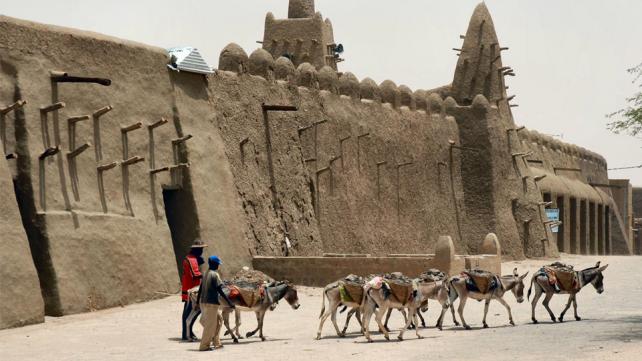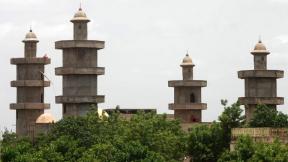
You may have witnessed a moment, an event or a discovery that would change the future of a community. This event or discovery would have to be something exceptional and dramatic to write a new chapter in the books of history.
But imagine witnessing a moment or discovery that would re-write the history of an entire nation! That has got to be something spectacular to erase and replace the pages of history.
This is precisely what has happened in Timbuktu, Mali in the last five years. Over a million manuscripts have been re-discovered and about 20 million more in West Africa overall. These manuscripts date back to 12th to 16th century period.
"Prior to the re-discovery of manuscripts, people thought Africa had no literacy and that it was a simple oral tradition,” says Okolo Rashid, Executive Director of International Museum of Muslim Cultures (IMMC) in Jackson, Mississippi.
"As a team of 25 scholars and historians study this newly uncovered global legacy of literacy in Africa, they believe it's enough evidence to re-write the history of Africa,” Rashid continued.
It is by far the most astounding revelation of its kind ever since the discovery of the Dead Sea Scrolls.
Intellectual Legacy of Africa
The Timbuktu manuscripts are a symbolic representation of the impact and influence of the early schools and universities (12th-16th centuries) that existed in West Africa.
"The fact that the trade of books in Mali was considered the most profitable business at that time shows how much West Africans loved literacy and education,” said Emad Al-Turk, Chairman and co-founder of IMMC.
These manuscripts, incredibly rich in style and content, illustrate the depth of knowledge and intellect of students and scholars in this center of learning.
The variety of topics these manuscripts cover is phenomenal. Some of the religious topics include: jurisprudence (Fiqh), human and women's rights, and Quranic commentary (Tafseer). In science, they cover everything from astronomy and medicine to mathematics.
"Interestingly, about 85 percent of manuscripts were written in Arabic, which indicates that writers were well-versed in Arabic and Islam, even though they may be addressing non-religious topics,” added Al-Turk.
Okolo Rashid described her trip to Timbuktu, Mali, in January 2004, as "indeed a moving and deeply spiritual journey.”
She said she marveled at these manuscripts "so beautifully bound in leather with calligraphy and illustrations painted on them.”
About one million manuscripts were hidden in Mali for over 500 years. As she explains, "it's God's Will that they survived, partly due to the arid environment.”
Opportunity to Tell the True Story
The rediscovery of ancient manuscripts offers an amazing opportunity to tell the true religious, political, social, and economic history of Africa to the world.
According to Al-Turk, this rediscovery is "extremely important for the educators in the American public school system because they need to teach students the correct story.”
It will also bring to light Muslim accomplishments in African history.
"For example, the concept of ‘global peace'. There is a large body of knowledge in the manuscripts developed around conflict resolution and mediation. This study will impact our global discourse on peace and justice. Through the writings of ‘scholars of peace' five centuries ago, we can learn from and adopt their unique model for local and global peace-keeping,” explained Rashid.
As we study these manuscripts, we realize that these people had developed a sophisticated socio-economic model for the publication industry. Africans in Timbuktu were at the forefront of the global Islamic knowledge industry at the time. They developed generations of local scholars who wrote books about everything. These books were then beautifully bound and exported.
Moreover, the manuscripts reveal that many Africans brought to America were very established and educated individuals. Some of them were judges, teachers, and merchants prior to the transatlantic slave trade. They were not brought over to be ‘civilized'.
"In fact Muslim Africans were the first cultural group to bring a revealed religion to America,” said Rashid.
These manuscripts may also serve as a "missing link” between African-Americans and Islam. "It will allow African-Americans to look at Islam and Muslim not as strangers anymore. This is the link that has been missing from our Black and African studies in universities all this time,” added Rashid.
Photo Attribution: Emilio Labrador http://farm4.staticflickr.com/3342/3331431933_0df7a9f664_o.jpg




Comments
Where can we read the
Where can we read the manuscripts?
Location
Add new comment